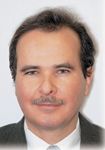- Acne
- Actinic Keratosis
- Aesthetics
- Alopecia
- Atopic Dermatitis
- Buy-and-Bill
- COVID-19
- Case-Based Roundtable
- Chronic Hand Eczema
- Chronic Spontaneous Urticaria
- Drug Watch
- Eczema
- General Dermatology
- Hidradenitis Suppurativa
- Melasma
- NP and PA
- Pediatric Dermatology
- Pigmentary Disorders
- Practice Management
- Precision Medicine and Biologics
- Prurigo Nodularis
- Psoriasis
- Psoriatic Arthritis
- Rare Disease
- Rosacea
- Skin Cancer
- Vitiligo
- Wound Care
Article
Autologous cellular treatments show long-term results with contour defects
Baltimore - Results of an exploratory phase 3 clinical trial demonstrate that injection of autologous living skin fibroblasts provides safe and effective correction of facial contour deformities that is sustained for at least 12 months, reports Robert A. Weiss, M.D.
Baltimore - Results of an exploratory phase 3 clinical trial demonstrate that injection of autologous living skin fibroblasts provides safe and effective correction of facial contour deformities that is sustained for at least 12 months, reports Robert A. Weiss, M.D.

The phase 3 study enrolled 151 patients at 10 study sites nationwide and is assessing treatment of eight types of facial defects, including acne scarring and rhytids. Dr. Weiss, associate professor of dermatology, Johns Hopkins University School of Medicine, is one of the clinical trial investigators.
All patients who entered into the trial underwent biopsy and had cells cultured, but they were randomized 4:1 initially to receive the autologous living fibroblasts or carrier medium as control. Three injections of 1 cc each were administered at one- to two-week intervals. Responses were assessed after months one, two, four, six and 12, with the primary efficacy assessment made after four months. Patients randomized to control had the option to cross over to treatment with the autologous living fibroblasts at six months.
The primary efficacy endpoint was based on investigator clinical assessment rating of wrinkle severity using a seven-point standard photoguide and compared the proportion of "responders" in each group, defined as patients experiencing a ≥2 grade improvement in at least one treated area.
The results showed statistically significant differences favoring treatment with the living fibroblasts at all visits.
At one month, responder rates were 57.0 percent in the autologous living fibroblast group compared with 32.5 percent among controls. By two months, responder rates to autologous living fibroblast injection increased to 79.6 percent and remained at approximately that level or higher at four, six and 12 months. The response rate to control at months two, four and six ranged from 36.1 to 38.2 percent and was thought to represent a transient effect of subcision and volume injection.
Dr. Weiss says results so far are very encouraging and indicate autologous fibroblasts could be "a very useful tool for achieving long-term correction of superficial facial wrinkles and acne scars."
The patients who participated in this phase 3 study were predominantly female (91 percent) and Caucasian (93 percent). They had a mean age of 47 years.
The cultured autologous fibroblast material that is injected has a watery consistency and is injected superficially into the area between the upper reticular to papillary dermis without anesthesia. Dr. Weiss says the culturing process appears to "rev up" the fibroblasts so that when injected, they initially break down existing collagen and then synthesize new matrix protein, yielding a net increase in structural collagen.
"Consistent with those concepts were our findings of noticeably less resistance to the injection when patients returned for the second treatment, as well as the increase in responder rates between month one and month two follow-ups," he notes.
There have been few adverse events associated with the autologous fibroblast injections. The typical response is some edema and redness at the injection site that resolves within one to two hours.
In addition to its potential to provide long-lasting efficacy, use of autologous fibroblasts is an attractive option for correcting skin defects because it avoids problems with allergic reactions and antibody development. Nevertheless, there is the potential for adverse events occurring because of sample contamination or mix-up.
"However, Isolagen has instituted an excellent quality control system with regard to tracking and culturing the cells, and no problems have been encountered so far," Dr. Weiss reports.
He notes that several years ago, another laboratory had undertaken studies to develop the concept of autologous fibroblast therapy for treating contour defects. Using a different protocol for cell transport and processing failed as a result of poor cell viability.
"Therefore, while phase 2 results using this new proprietary processing technique were promising, we had zero expectations for efficacy as we entered into the exploratory phase 3 trial," Dr. Weiss says.
Disclosure: Dr. Weiss reports no financial interest in Isolagen.
Newsletter
Like what you’re reading? Subscribe to Dermatology Times for weekly updates on therapies, innovations, and real-world practice tips.














